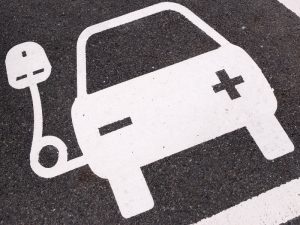Thatcham training to equip public sector and first responders with EV safety skills
Thatcham Research has launched new EV Safe training to prepare public sector workers and first responders for the unique safety challenges presented by electric vehicles.

The training addresses potentially dangerous scenarios encountered by public sector workers
The training focuses on awareness of safe handling requirements across electrified fleets, helping to ensure that anyone who may come across these vehicles at work is aware of the risks and dangers they can pose.
The two-day in-person course, which does not require delegates to have any involvement with the repair of EVs in their day-to-day jobs, is intended to equip public sector teams with the skills and knowledge to safely shut down and reinstate high-voltage vehicles.
The training equips delegates with the ability to know if an EV is still live, how to identify the different types of EVs, from full battery electric vehicles (BEVs) to hybrids, and the different handling requirements for each.
It addresses potentially dangerous scenarios encountered by public sector workers. This includes first responders who need to understand how to safely shut down an EV following a road traffic collision and how to identify safe cutting points to enable extrication. It also includes border force and police who need to be aware of safe handling considerations while searching EVs, including the importance of using appropriate PPE.
Dean Lander, head of repair sector services, Thatcham Research, said: “As electrification technology continues to be embraced on our roads, we must ensure that steps are taken now to properly equip staff across the UK with the knowledge to keep them safe when interacting with these vehicles.”

BEV incident claims are currently some 25.5% more expensive than their ICE equivalents and can take around 14% longer to repair
Thatcham research reveals higher costs and longer repair times for BEVs
The launch of the EV Safe training follows a new report from Thatcham that highlights repair and insurance sector concerns over rising BEV take-up.
Funded by the Government’s Innovate UK agency, the ‘Impact of BEV Adoption on the Repair and Insurance Sectors’ report finds all parts of the motor insurance claims process will need to adapt to support transition to BEVs, in the move away from internal combustion engine (ICE).
Despite newer BEVs featuring high fitment levels of ADAS (Advanced Driver Assistance Systems) and passive safety technologies, the report says they’re not risk- or incident-free.
And due to the nascent nature of the industry, BEV incident claims are currently some 25.5% more expensive than their ICE equivalents and can take around 14% longer to repair. Road collisions involving a BEV can be catastrophic for the vehicle as understanding and competence in rectifying the damage continues to develop.
The most significant challenges identified by the report originate from the high-voltage battery – which accounts for a substantial percentage of the original vehicle value and therefore skews the economic model of vehicle repair.
While the number of BEVs on UK roads is currently small, Thatcham warns there is an “understandable but concerning” lack of affordable or available repair solutions and post-accident diagnostics – and this could see claims costs continue to rise disproportionally.
Adrian Watson, head of engineering research, Thatcham Research, said: “Much of the motor insurance industry is yet to adapt to mass BEV adoption challenges, and the implications remain unquantified on repair capacity, training and skills, cost, and the lifetime sustainability of BEVs. This lack of awareness means many BEVs are often deemed irreparable, leading to premature write-offs because of high battery cost and the lack of value the UK ecosystem can recover from them.”
Currently, the cost of a replacement HV battery is causing a significant increase in the risk of ‘total loss’ or write-offs. The cost of such batteries varies widely from high-end vehicles, currently costing around £29,500, to the low-end costing some £14,200. The ‘depreciation curve’ of battery cost versus average used value, shows that the cost of a replacement battery is more than the used price of the vehicle after only one year.
Watson continued: “These cost increases present a significant risk to BEV uptake, reducing potential economic and sustainability gains. Technical solutions do exist for most if not all of these challenges. However, it is vital that credible cross-industry plans are urgently put into place that focus on addressing battery cost, diagnostics, and the creation of a sustainable ecosystem for battery repair.”
Thatcham warns there are many other factors which may also result in further insurance premium costs due to the differing processes that follow a BEV collision – ranging from limited access to battery diagnostics to enable a better understanding of battery health and potential repair options, to the increased weight of a BEV creating challenges to roadside recovery and a requirement for bodyshops to make costly investments in specialised repair skills and equipment.”
“It’s important to reiterate that most, if not all, of the outcomes highlighted by the report could be avoided with the right solutions in place,” said Watson, as Thatcham Research continues to work closely with the Government and vehicle manufacturers to identify solutions to the issues raised by the report.
Thatcham’s report on the ‘Impact of BEV Adoption on the Repair and Insurance Sectors’ is available here.

